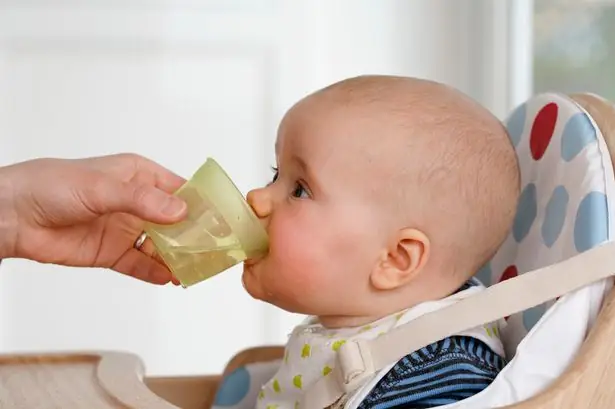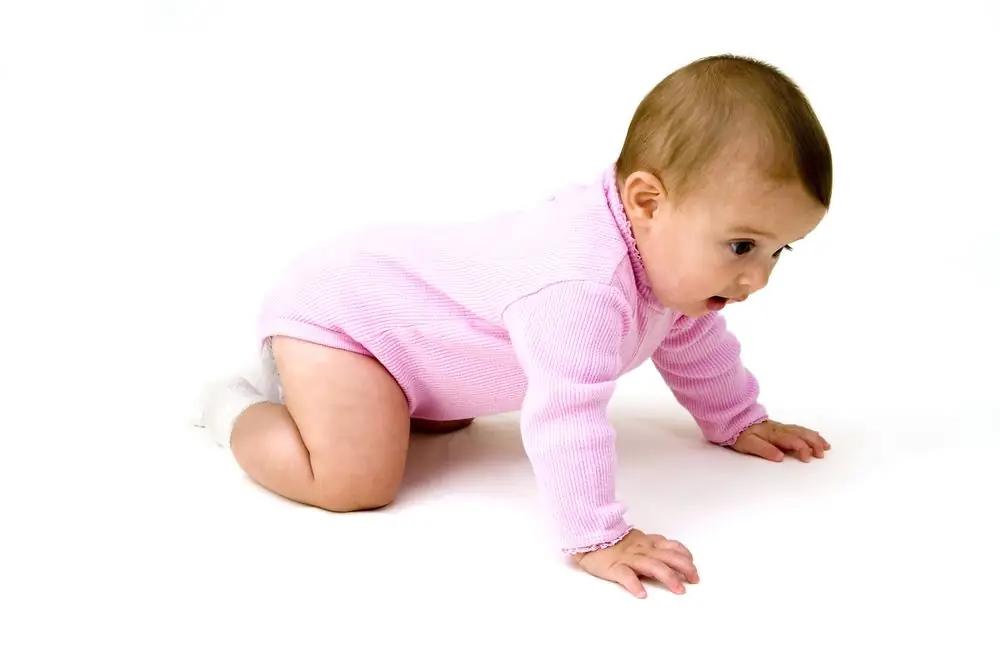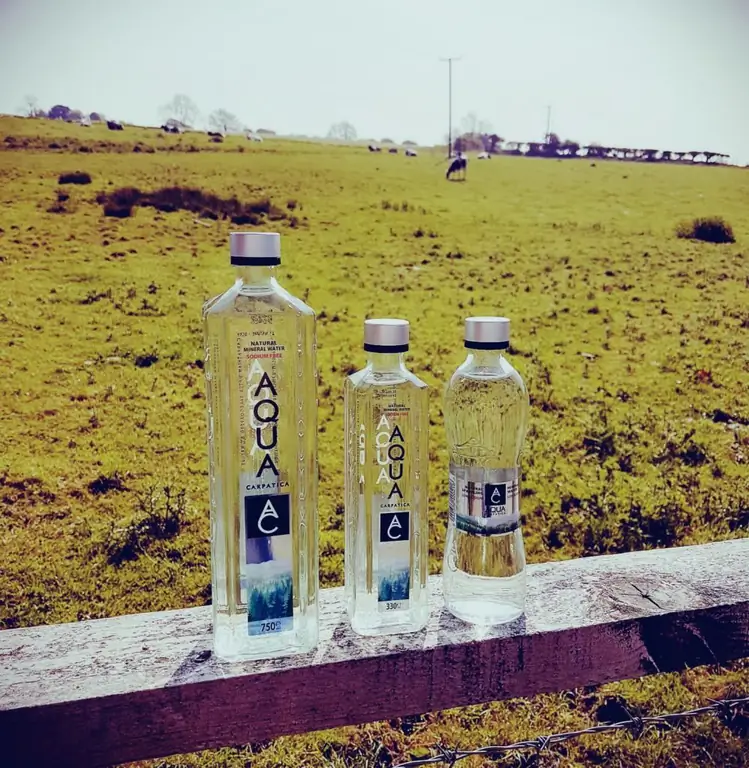2026 Author: Priscilla Miln | [email protected]. Last modified: 2025-01-22 17:55:26
No wonder they say: "A dog is a man's best friend." It's no secret that these devoted intelligent animals have accompanied man since ancient times. Dogs helped people hunt, guarded the home from uninvited guests. It is not surprising that often a dog became a family member for a person, a close friend, sharing both joyful and sad moments with him. Just like people, they worry, miss, rejoice and, unfortunately, get sick. Busy owners may not immediately discover that a four-legged friend has fallen ill. Sometimes a person notices a pet's illness too late, when nothing can be done. Therefore, it is very important to know when to pay attention to the well-being of the dog.

How much a day a dog should drink
One of the indicators of poor he alth is that the dog does not drink water. This is a very worrying sign. As you know, a person should drink about two liters of water per day. Dogs also have fluid limits, but since dogs come in different sizes and breeds, the amount of water your pet should drink per day is calculated using a special formula developed byveterinarians. To do this, multiply the weight of the animal by 20-70 milliliters of water. For example, a dog weighs 15 kilograms. Using the formula, we calculate that she needs to drink 300-1050 milliliters. Why is the volume not accurate? Because it depends on several factors, such as the time of year (during the warmer months the dog drinks more), the activity of the animal, the type of food (when eating dry food, the dog drinks more often).

Reason why dogs don't drink water
If you notice that the dog's water bowl is untouched, it is worth worrying. This is serious. Lack of adequate fluids can lead to dehydration, a very life-threatening condition. Plus, the reluctance to drink can be a symptom of the disease. If you notice that the dog does not drink water (or drinks in small quantities), he has lost his appetite, his eyes look unhe althy, the pet itself is lethargic, you should show it to a specialist as soon as possible. This must not be delayed.
There are a number of reasons why a dog won't drink water:
- Stale water and dishes. Water must be changed at least once a day. The dishes (bowl) themselves must be washed without detergent, or with a detergent for washing children's dishes. If the dishes or water smell unpleasant (and the dog's nose is much more sensitive than ours), the dog will refuse to drink. Only boiled water should be poured.
- Injuries in the oral cavity. If you watch a dog drinking in slow motion, you will see that the tongue acts as a "ladle". She scoops up water for them and sends them tomouth. If the tongue or lips are damaged, it may be painful for the animal to drink. Be sure to take the dog to the vet.
- Throat diseases. Laryngitis and pharyngitis cause pain and swelling in the throat, making it difficult for the animal to swallow.
- Pregnancy. During pregnancy, the dog may refuse water. You should consult a specialist and control the amount of fluid you drink.
- Viral diseases. Due to poor he alth, thirst and appetite disappear even in people. Dogs are no exception.
- Diseases of the genitourinary system.
- Oncological diseases.

What to do
Unfortunately, most of the reasons why a dog refuses water is due to illness and poor he alth. Trying to treat the animal on your own is highly discouraged - only a veterinarian can make a diagnosis. He must prescribe medicines. Primary care is that you need to water the animal. To do this, you can soak your dog's favorite treat in water and offer it to her. If she refuses, you can draw water into the syringe and carefully pour the pet into the mouth.

Dog drinks water often
We figured out the reasons why a dog may not want to drink. But what if the dog drinks a lot of water? The causes and treatment will be discussed below.
Natural Reasons Your Dog Drinks Too Much
- The season. In hot weather, the dog needs to replenish fluids in order not todehydration occurs, and reduce body temperature so that there is no overheating. For a walk on such days, it is recommended to take a bottle of cool water so that the pet can drink at any time.
- Food. If a dog eats dry food, he needs to drink more often and more than dogs fed wet food. Also, dog owners note increased thirst in a pet when transferring from wet to dry food. This reaction is considered normal and should not cause concern.
- Low indoor humidity. In winter, heating and heaters begin to work, which dry the air. People may not notice this, but dogs are sensitive to such changes. Dry air irritates the nose and respiratory tract, so the animal will strive to replenish the amount of fluid.
- Increased physical activity.
- Taking certain medications (such as diuretics or anticonvulsants).
- Eating s alty foods.
- Heating. At this time, the dog drinks much more water than usual.
- Lactation period (puppy feeding).
- Age. In older dogs, the kidneys often fail, the dog drinks a lot of water and urinates more often. Incontinence may develop. The animal needs to constantly replenish moisture because of this.

In these cases, increased fluid intake is not dangerous for the dog. However, if this continues for more than a few days, it is worth taking the dog to the veterinarian: the reasons may be serious.
Dangerous reasons whydog drinks a lot

- Food poisoning. During a walk, the dog could find and eat stale food, the process of intoxication begins, often accompanied by vomiting or diarrhea. The animal drinks more to cleanse the body of toxins faster and avoid dehydration. If you are sure that the dog has been poisoned, you must give it activated charcoal (at the rate of one tablet per ten kilograms of weight) and try to induce vomiting with saline (one tablespoon of s alt per glass of boiled water). These are primary measures, only a specialist will prescribe full treatment.
- Infectious and viral diseases. If your dog has a fever, he needs to drink more to support his immune system.
- Diabetes (diabetes and insipidus). This disease is always accompanied by drying of the mucous membranes and intense thirst. An appeal to a specialist is required - the animal may die.
- Oncology.
- Pyometra. A dangerous disease accompanied by purulent inflammation of the uterine cavity. A trip to the veterinarian and an ultrasound examination are required to make a diagnosis.
- Hypercalcemia. High levels of calcium in the dog's blood leads to dehydration and, as a result, to thirst.
Things to remember

As you can see, if a dog drinks a lot of water, or, on the contrary, refuses it, first of all, you need to try to figure out for yourself what this can be caused by. If explicitThere is no reason for this, do not put off going to the vet. You should never self-medicate as a dog or any living creature. Only a specialist is able to identify the causes of your pet's unusual behavior and prescribe treatment for it. Be more attentive to your four-legged friend, and he will be happy to give you many years of marriage.
Recommended:
Why does a child sleep poorly at night - possible causes and solutions to the problem

From the first days after the birth of a child, parents face many problems. Restless behavior, poor nutrition, unnatural lethargy of a baby at a particular age - all this is a serious reason for excitement. Bad sleep is no exception. Therefore, you need to find out why the child does not sleep well at night
The child does not drink water - what to do? Should I give water to newborns while breastfeeding?

Many young mothers face various problems after the birth of a baby. Even such a well-known process as breastfeeding contains many unknowns. Often parents have a question: what to do if the child does not drink water? Therefore, it is necessary to understand when and in what quantity to give it to a newborn, and it is also needed in general at this age
If a husband does not love his wife: what are the signs? How does a husband behave if he does not love his wife?

When one of the spouses has feelings - this is a severe stress. Any changes in relationships for the worse are especially painful for a woman, since it is vital for her to be loved and desired. It is very difficult to accept the fact that a man has fallen out of love, so many wives continue to deceive themselves and play the perfect family. Such a position is very dangerous, as it presupposes inaction. It is much wiser to admit the problem and try to understand what to do if the husband does not love his wife
At 8 months the baby does not crawl and does not sit: how to help learn

Sometimes, parents, especially young ones, are impatient. They really want their child to sit down faster, start walking and talking. However, do not rush things. After all, everything will have its time. Some moms and dads get very worried when the baby doesn't sit and crawl on time. Although there is no strict framework for the appearance of these skills. What to do if the child is 8 months old, does not sit or crawl?
Can pregnant women drink sparkling water: types of sparkling water, keeping the water balance in the body, the benefits of mineral water, reviews of pregnant women and advice from

Pregnancy is the most important initial stage of motherhood. The development of her baby will depend on the responsibility with which a woman approaches her he alth at this time. How not to harm yourself and your child, is it worth changing your eating behavior and what is the harm or benefit of carbonated water, you will learn from this article

